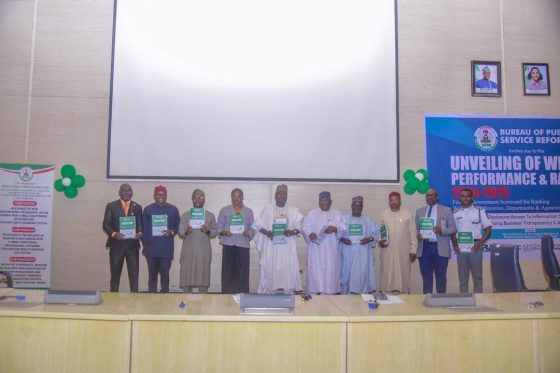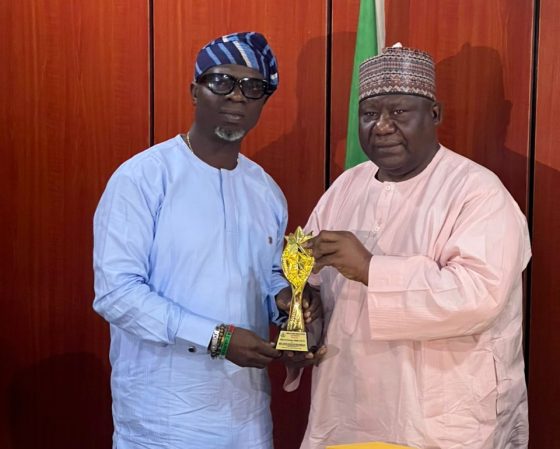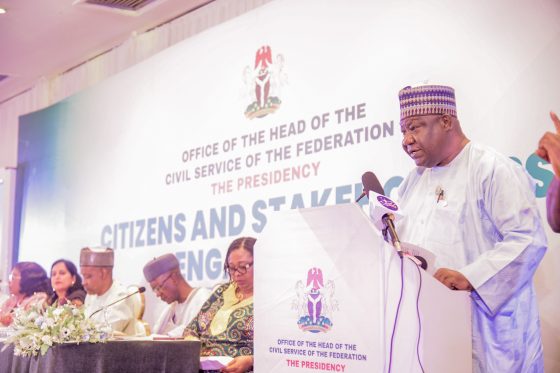European Union Support To The Federal Government Reform Programme (EU-SUFEGOR)
- Home
- European Union Support To The Federal Government Reform Programme (EU-SUFEGOR)
European Union Support
Press Release
1. The 10th European Development Fund (EDF) is providing the Federal Government with a grant of Euro 20 million to specifically support the second phase implementation of the National Strategy for Public Service Reforms (NSPSR) particularly in the areas of governance, institutional strengthening and efficient civil service administration reform over a period of three years from 2012-2015. The project is titled “European Union Support to the Federal Government Reform Programme” (EU-SUFEGOR).
2. The National Planning Commission engaged a consultant in 2011 to work with the BPSR in the formulation of the support to the FG Reform programme. The draft Final Report on the “Formulation of support to FGN Reform in Nigeria under the 10th EDF’’ was validated by the NBS, FIRS, NPC, OHCSF and BPSR.
3. The EU-SUFEGOR project is designed to support the five afore-mentioned (5) MDAs in the Federal Public Service by strengthening their capacity in the areas of policy coordination, planning and development, revenue generation, record and financial management, performance monitoring and development of statistics. This will be actualized through the carried agreed work plan that would be developed by the BPSR in collaboration with the National Planning Commission (NPC) and Technical Assistance Team (TAT).
The five (5) MDAs that EU-SUFEGOR covers are as follows:
Office of the Head of the Civil Service of the Federation (OHCSF);
Bureau of Public Service Reforms (BPSR);
National Planning Commission (NPC);
Federal Inland Revenue Service (FIRS);
National Bureau of Statistics (NBS).
4. The Operational Management Structure (OMS) for EU-SUFEGOR is at five (5) levels; i.e. the National Authorizing Officer (NAO); Project Coordination Committee (PCC); Project Implementation Agency (PIA) (i.e. BPSR); National Planning Commission (NPC) and the Technical Assistance Team (TAT). Of relevance to this submission is the OMS on the PCC and PIA. The Project Coordination Committee (PCC) is to provide technical guidance, planning and coordination of implementation of project activities, quality assurance and monitoring the progress of project implementation. The PCC is expected to be chaired by a Permanent Secretary in the OHCSF or a designated representative. Other members of the PCC will be made up of representatives of the rank of Directors drawn from the NPC, Federal Ministry of Finance, FIRS and National Bureau of Statistics. A Director from the BPSR will serve as the Secretary and a representative of the EU Delegation will serve as an observer. The PCC is to meet every month and among others responsibilities; approve work plans and reports submitted to it by the Project Implementation Agency.
5. The Project Implementation Agency (PIA) is the BPSR, which is saddled with the primary responsibility for the day-to-day operational activities of EU-SUFEGOR and to relate with other agencies as well as the OMS on implementation issues.
6. The EU-SUFEGOR establishes also the governance structures for the project, namely: the Public Service Reform Committee (PSRC) and Project Steering Committee (PSC). The Project Steering Committee is essentially to supervise the implementation of the project at the highest level. Its members will include representative from the OHCSF (as chairman), NPC, FMF, FIRS, NBS, EU-Delegation (as observer) and the BPSR to serve as the Secretariat to the Committee.

Federal Secretariat Complex, New Extension, Plot 04, Phase II, Block D, 3rd Floor, Shehu Shagari Way,
GARKI, ABUJA, NIGERIA.
Newsletter
Subscribe to the BPSR newsletter to receive the latest updates on public sector reforms, research publications, events, and policy insights.



